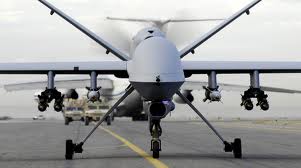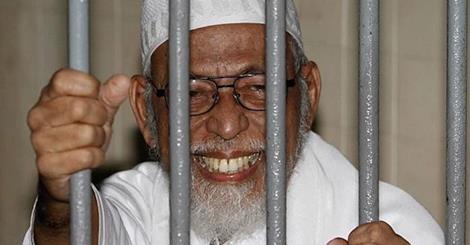On July 10th the United States military successfully landed an X-47B naval drone on an aircraft carrier 80 miles offshore from Virginia. This was the first time such an exercise has been attempted, and the media attention it has attracted is a testament to the public’s fascination with this burgeoning aspect of US foreign policy. America’s drone program has been a source of great controversy for several years, but it shows no signs of abating. Meanwhile, the German parliament has begun an inquest into the cancellation of its Euro-hawk drone program, proving that drones are a controversial political issue across the Atlantic as well. In order to foster a productive debate about the use of drones it is necessary to establish why they are so contentious. Critics tend to focus on the technology itself, but attention must also be paid to the political reasons for their use.
[captionpix align=”left” theme=”elegant” width=”475″ imgsrc=”http://natoassociation.ca/wp-content/uploads/2013/08/drone2.jpg” captiontext=””]
On one hand it is understandable that the rise of drone warfare and surveillance has attracted so much attention and controversy. The idea of robotic, unmanned aircrafts observing and attacking targets has unavoidable science-fiction connotations that are bound to capture the public’s attention and raise some concern. But if opponents of military drone technology rely exclusively on popular discomfort with seemingly futuristic weaponry, they are unlikely to win many debates. Perhaps the most compelling argument opposed to drone technology is that it lowers the human cost of warfare. As military operations pose less risk to personnel, operations can become more reckless and aggressive. This is a legitimate point, but much the same argument could be made in opposition to missile technology or advancements in protective equipment, neither of which elicit much controversy. As a result, a persuasive critique of military drone programs must go beyond superficial discomfort with the technology itself.
In some ways, the fascination with drone technology has helped the Obama administration partially avoid criticism for how these aircrafts have been used. Aside from the bombing campaign in Pakistan, it is difficult to imagine that the assassination of US citizens in Yemen would not have provoked even greater outrage and scrutiny if more traditional methods had been used. Media reports generally insert a technology denoting prefix when reporting these operations as drone-bombings or drone-based assassinations. Rather than inviting a discussion on the legitimacy of a bombing or assassination, the debate becomes about the drones themselves. Essentially, drone warfare has created a controversy that conceals and distracts from the more fundamental issues it entails.
There is little evidence to support the notion that the Obama administration has expanded drone activity because they provoke a somewhat muddled debate. Nonetheless, there is reason to believe that America’s drone programs have expanded in order to bypass political controversy. The preceding Bush administration elicited a sustained chorus of global criticism for its treatment of prisoners in the so called “War on Terror.” Some commentators have argued – at least implicitly- that the expansion of the US’ drone program is a way to compensate for the curtailment of the previous government’s anti-terror policies. In other words, to avoid the political and legal difficulties associated with detention, the US has pursued assassinations instead. If this analysis is correct, criticism of America’s drone program is certainly warranted.
Crucially, what is at issue here is not the technology itself, but its political implications. It is clear enough that what it does – surveillance and assassination – is worthy of scrutiny. But in the case of America’s drone program it is important to recognize what it represents socially and politically. The US drone program can be seen as a continued struggle by the defence establishment and executive branch to accommodate public opposition to certain anti-terror tactics, while maintaining an active and extensive security apparatus. Opponents of “enhanced interrogation” and rendition were partially successful, but it is unlikely they wanted to see these policies replaced with drone assassinations. Rather than focusing on technology, America’s use of drones can more effectively be critiqued as a means of circumventing the political restrictions placed on American foreign policy. In order to make their case effectively, opponents of military drones must ensure that the debate remains about politics, not just technology.




